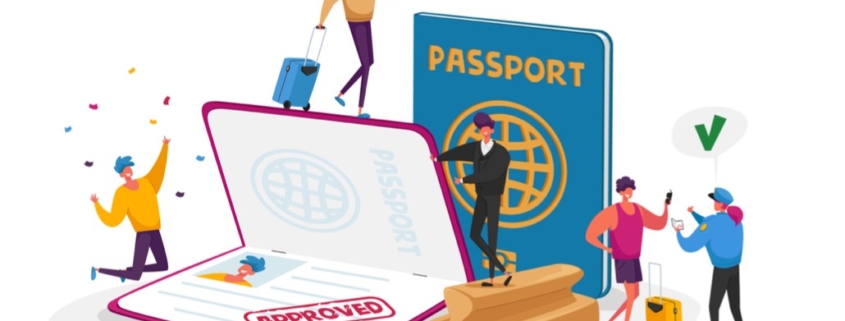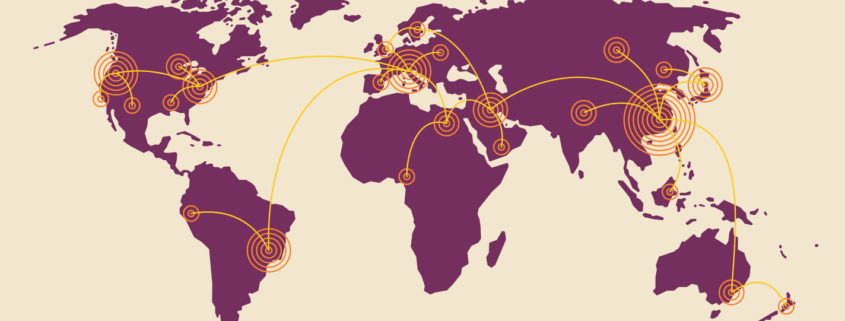By Eva Huang
There have been important measures and initiatives announced in the latest budget of 9 May 2023 which affect immigration – and it’s important we explain these so the information is digestible but accurate.
The following are the most impactful of the Budget’s effects on migration.
- Skilled Migration
Described by the Government as emphasising the importance of skilled migration in addressing labour market demands, the Budget’s updates include:
- Allocating 70 per cent of places (137,000) in the permanent migration program (190,000, 5,000 places less than current fiscal year) to skilled migrants.
- Providing an extra two years of post-study work rights to temporary graduate visa holders with selected degrees.
- An increase to the Temporary Skilled Migration Income Threshold to $70,000 (this particularly impacts employer-sponsored visa classes TSS 482 and ENS 186).
- Providing additional training places for Pacific Australia Labour Mobility scheme workers in priority sectors for the Pacific and Timor-Leste and where there are job shortages in Australia.
- Providing onshore migrants with fast-tracked skills assessments.
- Removing restrictions to enable TSS visa holders on short-term stream to permanent residence pathways through the Employer Nominated Scheme (subclass 186) visa.
- Removing one onshore renewal for the TSS short-term stream visa.
The Budget revealed these important adjustments to Planning Levels for 2023-24
| Visa Stream |
Visa Category |
2022-23 Planning Levels |
2023-24 Planning Levels |
| Skill |
Employer Sponsored |
35,000 |
36,825 |
|
Skilled Independent |
32,100 |
30,375 |
|
Regional |
34,000 |
32,300 |
|
State/Territory Nominated |
31,000 |
30,400 |
|
Business Innovation & Investment |
5,000 |
1,900 |
|
Global Talent (Independent) |
5,000 |
5,000 |
|
Distinguished Talent |
300 |
300 |
| Skill Total |
|
142,400 |
137,100 |
For complete Budget documents, visit this website.
- Fewer business innovation and investment visas
Only 1900 places are now available within subclass 188A, 188B, 188C and 188E visa applicants. This is a significant adjustment compared with last year (when there were 5,000 places for this category).
- Initiatives encouraging Regional Migration
The Budget includes initiatives to encourage skilled migrants to settle in regional areas, such as regional visas, incentives for employers, and increased investment in regional infrastructure.
- Family Migration funding is being expedited
Because the Budget acknowledges the significance of family migration in promoting family reunification and social cohesion, funding has been allocated to expedite the processing of family visa applications, reduce backlogs, and improve the efficiency of the family migration program. However, the place for this category has not changed.
- Citizenship and Integration emphasised in this Budget
Efforts to promote citizenship and integration have been highlighted in the Budget. As such, funding has been allocated to support citizenship applications, enhance citizenship testing processes, and provide language and cultural orientation programs to facilitate the integration of migrants into Australian society.
- Visa Application Charges
Visa Application Charges (VACs) will increase from 1 July 2023.
- Significant increase to the Temporary Skilled Migration Income Threshold (TSMIT)
The increased TSMIT may have a difficult impact and may mean some small businesses struggle to sponsor new TSS employees for salaries under $70,000, which is the new threshold salary amount. FCB Smart Visa has an article about what to expect from the threshold change and why we suggest you consider lodging new applications and renewals before 1 July 2023.
The wider picture is we can expect a possible impact on market salaries for all employees in affected occupations.
Read the article here.
As an employer, expect a generally favourable impact but note the increased costs, which may need to be communicated with your current and incoming workforce
The new budget has significant benefit for employers who are seeking skilled workers from overseas, not only with increased places under the budget, but also with improved processing time and alleviated restrictions.
Sponsored employees will have a pathway to permanent residency (subject to meeting all other requirements) with released requirements under the pathway of two years working for their sponsor, instead of three.
What you need to do
Considering the tone of the Budget, we encourage you to do the following:
- Review your business’s permanent residency policy to encompass the implications of the Budget
- Review your lists of who in your workforce holds a visa.
If you have questions about the Budget’s impact on your workforce and how changes to costs and policies this may impact your business, please contact FCB Smart Visa.
Eva Huang is an Immigration Solicitor with FCB Smart Visa.
Eva Huang (Immigration Solicitor, LPN: 5513135) is a solicitor at FCB Smart Visa. Eva provides clients with high standard advice in all areas of the Australian Migration Program. Eva has specific high level of knowledge of all aspects of the employer sponsored program, she delivers comprehensive advice to employers on visa pathways and processes. Eva also advices clients on skill assessment, regional certificate and other matters related to the employer sponsored program. Been a bilingual professional with over 15 years of working experience in diverse environment, Eva values clients from various backgrounds and advices based on client’s best interests.










